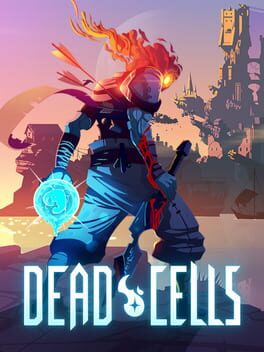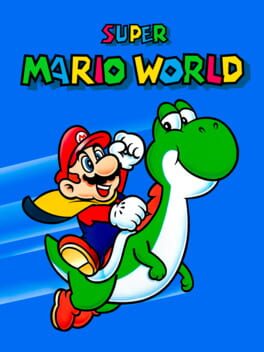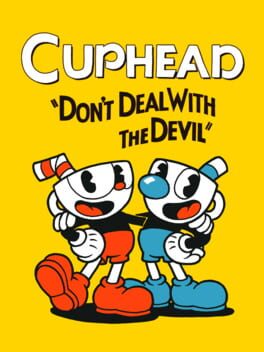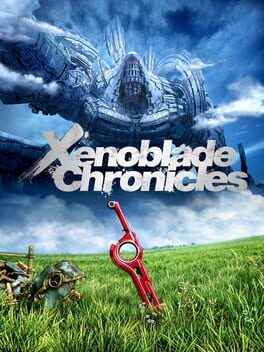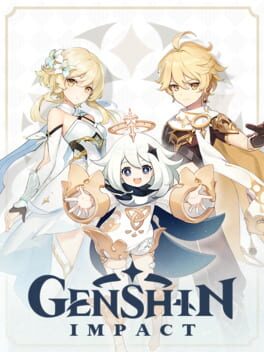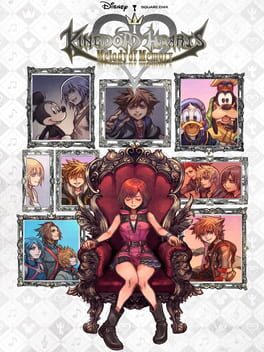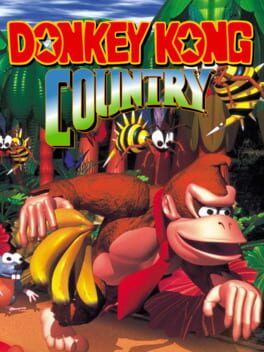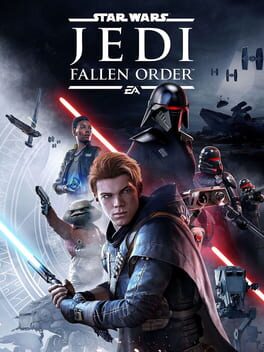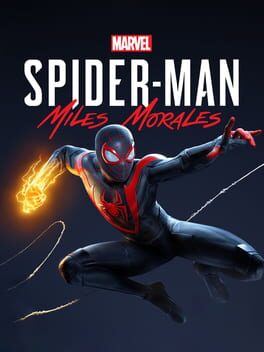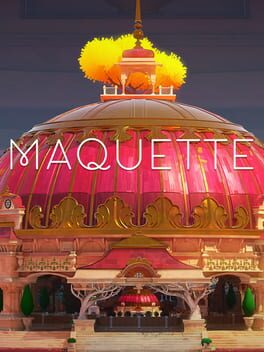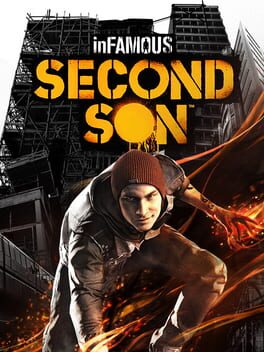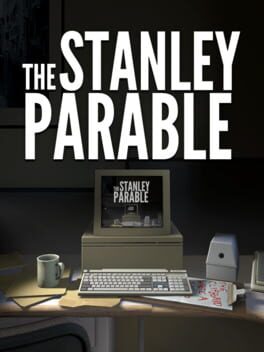GxBemis
2017
1990
As someone who is garbage at platformers, this was fun. Plenty of secrets and shortcuts allow for modified progression and increased replayability. The new power-ups frequently encourage unconventional experimenting, even if the cape might be a tad broken. I also found the more lax nature of the game (less aggressive enemies, more breathing room with less strict timers, and less punishing restarts) easier for me to slip into than its predecessors, although that's definitely a preference thing.
Only major issue is with the bosses, they are significantly easier than the rest of the game, and are repeated with few changes. Their design isn't bad, just unremarkable. Bowser's the only standout, and even then he's just okay.
Only major issue is with the bosses, they are significantly easier than the rest of the game, and are repeated with few changes. Their design isn't bad, just unremarkable. Bowser's the only standout, and even then he's just okay.
2017
2010
2020
A collection of tropes poorly meshed together with no understanding of how or why they work well meets solid combat and an appealing world, occasionally blemished with its gacha tendencies. Blatantly wears its inspirations on its sleeve but doesn't often entertain the thought of surpassing them. Beyond the initial facade of depth, you get something fair for its price but with clear room for improvement.
Fun celebration of the series. Music contributes much to the atmosphere of Kingdom Hearts, which I find to be the series' most indelible appeal across so many entries. Melody of Memory successfully utilizes this appeal within its core gameplay, with levels built to stimulate the reminiscing of the player while also offering greater challenge for those that desire a more involved playthrough. Perhaps not too approachable for newcomers, but perfect for dedicated fans.
1994
Deliberately builds a layered atmosphere down to the smallest minutiae. The game knows how to transition to disparate locations while maintaining a unified feel due to the emphasis on isolation in a foreign world. You're a lone bounty hunter, invited to search deeper in places full of life hidden from your complete comprehension. The score is a striking balance between atmospheric and melodic to spur you on this journey into the unknown.
Movement is very fluid and flexible. Progression can get tricky and Maridia drags on a bit. Fortunately exploration is the focus and the world here is so fascinating it rarely becomes a chore to play.
Movement is very fluid and flexible. Progression can get tricky and Maridia drags on a bit. Fortunately exploration is the focus and the world here is so fascinating it rarely becomes a chore to play.
1994
Design wise, this was a conflicted experience. What with uncapped speed, the steady momentum and blissful atmosphere of the the score, and little touches to immerse the player in the world such as in the world map or lack of timer within levels, the game seems to be pushing you to move through levels at a rhythmic, even relaxed pace as opposed to rushing the player through obstacle course-like levels. However, a particularly zoomed-in camera combined with frequent and exaggerated stumbling blocks prevent the player from reaching this pace naturally, mostly fumbling in and out of sync. The high level of immersion is enough to set it apart, especially because of how good those elements are, but there's definitely room to brush up the design.
2000
Simultaneously contemplative and spirited, this meticulously crafted installment of the storied Final Fantasy series embodies the best of what RPGs (and games at large) can offer as a medium of storytelling. The impeccably structured narrative is rivaled by the fascinating world design and charming art direction. The diverse and dynamic cast of characters, while not as deeply relatable or developed as others, work in perfect service of the game's themes of life and existentialism. The third act may not be as refined as the previous two, but is still inspired and contains a few of the game's most memorable moments.
In spite of the combat's acute sense of difficulty and balance, it remains a little more overtly flawed than other aspects. The ATB system implementation is lacking, with battles feeling slower than previous entries even on the highest speed option, creating a wider potential margin of error for the player's inputs. Trance as a mechanic is usually wasted because of the degree of the lack of player control, even if it better serves the balance of battles. The minigames are generally unfun, especially Tetra Master, which would be less of a problem if so much time wasn't necessary to pass them in certain portions of the game where they are required. However, the basics of gameplay are streamlined without sacrificing depth in strategy and it remains enjoyable and engaging for the majority of the playthrough, with class abilities like black magic and summoning woven intricately into the plot.
This is the purest culmination of Final Fantasy there is. While the series will probably continue forever, IX understands that you must learn from the past to evolve from it.
EDIT: I forgot to mention the soundtrack...it's brilliant. You're Not Alone and Melodies of Life stand out as some of my favorite in the series.
In spite of the combat's acute sense of difficulty and balance, it remains a little more overtly flawed than other aspects. The ATB system implementation is lacking, with battles feeling slower than previous entries even on the highest speed option, creating a wider potential margin of error for the player's inputs. Trance as a mechanic is usually wasted because of the degree of the lack of player control, even if it better serves the balance of battles. The minigames are generally unfun, especially Tetra Master, which would be less of a problem if so much time wasn't necessary to pass them in certain portions of the game where they are required. However, the basics of gameplay are streamlined without sacrificing depth in strategy and it remains enjoyable and engaging for the majority of the playthrough, with class abilities like black magic and summoning woven intricately into the plot.
This is the purest culmination of Final Fantasy there is. While the series will probably continue forever, IX understands that you must learn from the past to evolve from it.
EDIT: I forgot to mention the soundtrack...it's brilliant. You're Not Alone and Melodies of Life stand out as some of my favorite in the series.
The campaign follows a by-the-numbers narrative, occasionally presenting interesting concepts, leaning nicely on dramatic moments and set pieces. It feels heavily focused on establishing a foundation for a series of these games in which it is successful, but sometimes at the cost of the cohesiveness of the experience.
Regardless, it manages to stand out due to the prominence of its varied design inspirations (souls-like combat, Zelda-like puzzles, metroidvania inspired levels). None of these elements are exactly the best showcases from their respective genres, but they are generally executed with enough competency to satisfy the player. Combat is probably the game at its finest when force abilities are more fully unlocked, and leads to some pretty thrilling encounters thanks to solid enemy variety and design. Levels are fairly open and explorable, although backtracking is necessary often.
The biggest detractor by far is the optimization. Performance on base PS4 ranges from acceptable to horrendous depending on what planet you're on. Across the board, even on Pro/One X from what I've seen, load times are also terrible. With a recent update it seems this is fixed for next-gen systems, so if you're interesting I'd recommend playing on those.
Regardless, it manages to stand out due to the prominence of its varied design inspirations (souls-like combat, Zelda-like puzzles, metroidvania inspired levels). None of these elements are exactly the best showcases from their respective genres, but they are generally executed with enough competency to satisfy the player. Combat is probably the game at its finest when force abilities are more fully unlocked, and leads to some pretty thrilling encounters thanks to solid enemy variety and design. Levels are fairly open and explorable, although backtracking is necessary often.
The biggest detractor by far is the optimization. Performance on base PS4 ranges from acceptable to horrendous depending on what planet you're on. Across the board, even on Pro/One X from what I've seen, load times are also terrible. With a recent update it seems this is fixed for next-gen systems, so if you're interesting I'd recommend playing on those.
1994
This review contains spoilers
A staggering, dramatic achievement created by an impassioned team of experienced and talented developers. This is an incredibly ambitious installment, aiming to capture the melancholy and essence of life in an oppressive world. The strife of each (mandatory) party member and subsequent forging beyond their unique but analogous pain is a profound commentary on the value and necessity of hope. The game demonstrates its dynamic tone as it shuffles you through diverse locations, set pieces, and minigames, without ever compromising on interactivity or ignoring the tenderness of the material. The world of ruin was a genius idea, sending the world into a bleak, aimless despair following the failure of our protagonists to allow them to experience or return to their intense anguish and reevaluate life. Kefka is the perfect, dastardly antithesis for our heroes; a cunning man who denies his humanity. In spite of the emotional backstories that unify most of the game's principal characters, Kefka is an unpopular lackey general who's past is minimally explored even after his sudden and unforgiving betrayal, as if he was some inhuman creature incapable of any redeeming qualities based on his blatant disregard of life; this is what the pure, hidden evil of a monster's heart looks like. All-in-all, one of the finest narratives the medium can offer, with a compelling fervor that comes through even in the less-than-stellar original translation.
Considering the large number of party members, its surprising how unique and deep they are mechanically. There are multiple berserkers and mages, for instance, but each have a special ability or strength that opens a myriad of strategic possibilities. I'm particularly a fan of Sabin, who is capable of powerful attacks at no cost, provided you remember the inputs for his blitz combinations, almost like fighting game combos. Compare this to Gau, a blue mage-berserker hybrid, and you'll get a sense of how differently the characters have been designed. Customization is integral and extensive even occasionally at the expense of pacing during some of the longer/more difficult dungeons. I do have a few qualms, mainly the encounter rate during some sections being a little intrusive, Gau having a ton of useless rages making learning useful ones arduous, really good equipment being locked behind high risk, non-interactive coliseum fights, the world of ruin being perhaps a little too vague with how to explore important character details and arc resolutions, and a general (although understandable) lack of game balance. However, compared to the satisfying setups and executions possible within the game's systems, as well as the intricate world design, these flaws are made out as (mostly) minor blemishes on the quality of the experience as a whole.
Other noteworthy aspects, the artstyle is charming and ageless, and the soundtrack is Uematsu at his apex in terms of range, catchiness, and dramatic weight. This is a masterpiece and an ambitious gold standard for JRPGs, easily joining my favorites.
Considering the large number of party members, its surprising how unique and deep they are mechanically. There are multiple berserkers and mages, for instance, but each have a special ability or strength that opens a myriad of strategic possibilities. I'm particularly a fan of Sabin, who is capable of powerful attacks at no cost, provided you remember the inputs for his blitz combinations, almost like fighting game combos. Compare this to Gau, a blue mage-berserker hybrid, and you'll get a sense of how differently the characters have been designed. Customization is integral and extensive even occasionally at the expense of pacing during some of the longer/more difficult dungeons. I do have a few qualms, mainly the encounter rate during some sections being a little intrusive, Gau having a ton of useless rages making learning useful ones arduous, really good equipment being locked behind high risk, non-interactive coliseum fights, the world of ruin being perhaps a little too vague with how to explore important character details and arc resolutions, and a general (although understandable) lack of game balance. However, compared to the satisfying setups and executions possible within the game's systems, as well as the intricate world design, these flaws are made out as (mostly) minor blemishes on the quality of the experience as a whole.
Other noteworthy aspects, the artstyle is charming and ageless, and the soundtrack is Uematsu at his apex in terms of range, catchiness, and dramatic weight. This is a masterpiece and an ambitious gold standard for JRPGs, easily joining my favorites.
It feels cobbled together somewhat, lacking the polish of its predecessor. The drama is shakier, the dialogue is inescapably "off", and the pacing is less consistent compared to PS4. However, there are a lot of neat ideas, especially in the gameplay, that adds a bit more flavor to the proceedings. Ultimately, it doesn't stray too far from the original foundation so it is similarly enjoyable.
2021
2014
Despite Sucker Punch being one of my favorite developers for their work on the Sly series, I haven't been too fond of their Infamous series. The games are inferior not only from a technical perspective but also in terms of narrative and design. While Sly cleverly handpicked and streamlined elements from the then-abundant mascot platformers of the era and combined them with a charming comic book aesthetic via stylized intro cutscenes and in-game cel shading techniques to create something wholly unique to the medium, Infamous rarely surpasses its open-world/sandbox peers despite ostensibly employing a similar approach, albeit with more trendy gritty open-world/sandbox-type fare. Your arsenal and enemies are repetitive, and while the games try to offset this with a variety of missions in the campaign, they rarely deviate enough to offer any real engagement. The occasional bland boss fight fails to excite as well. The morality (karma) system the series champions underscores any real depth characters could possibly have since different choices can't actually matter or have their own lasting consequences. As far as design goes, karma ironically is a thoughtless ordeal, since all the best power upgrades are locked in the furthest rank of either morality, meaning the most optimal play is to commit to either side at the start and never look back. Additional steep downgrades are found in rote plot beats, choppier performance, and more boring visuals.
Really, any modicum of quality that shines through the experience is probably due to the expertise of the developer. As conflicted as the design is, and as forgettable the flavor, Infamous remained fun to actually play. It well-executes the concept of an all-powerful individual that reigns over an open sandbox, free to do whatever the player desires with somewhat appropriate responses in the narrative, however insignificant. Traversal and movement feel fluid, and haven't aged as poorly as nearly everything else. The lack of restriction and prioritization of interactivity make the shallowness engaging on a surface level. Sure, its a mess, but a mess you can experience whatever way you want to. That doesn't make the series good, but there is a worthwhile experience tucked away there.
It's a shame, then, that the series' PS4 debut places the worst parts of the first two games front-and-center, struggling to hold the player back while attempting to contextualize their actions in meaningless ways. The narrative becomes harder to dismiss, which make its failings of characterization more apparent. Karma makes a comeback with an even greater dilemma; trudge through the good path for some semblance of cohesion in the campaign in exchange for your patience, or commit to the bad path, which scrambles to justify any of Delsin's choices and actions but can at least entertain you in a perverse sense. Combat, an already borderline ordeal, takes a blow with no good crowd control or defensive options but with an increase in enemy pressure, meaning a playthrough on easy or normal mode will feel unsatisfying as you plunge through enemies without a second thought, or you endure expert mode, which isn't difficult as much as it is agitating, since you're never afforded the pleasure of riskier plays and can only reliably snipe enemies from a distance since you die too quickly otherwise. Gaining other sets of powers is a good idea to introduce variety to the combat, but they are not diverse enough in practice, offering little reason to use one over the other outside of aesthetic preference.
Second Son feels rushed, not really in a broken way, moreso just an empty, forgettable, ill-constructed way. This doesn't surprise me in retrospect, it was not given much time in development. Maybe it was a decent tech-demo at the time of the PlayStation 4's launch, but now there is very little reason to go back. There are better looking, running, and designed games on the system's library.
Really, any modicum of quality that shines through the experience is probably due to the expertise of the developer. As conflicted as the design is, and as forgettable the flavor, Infamous remained fun to actually play. It well-executes the concept of an all-powerful individual that reigns over an open sandbox, free to do whatever the player desires with somewhat appropriate responses in the narrative, however insignificant. Traversal and movement feel fluid, and haven't aged as poorly as nearly everything else. The lack of restriction and prioritization of interactivity make the shallowness engaging on a surface level. Sure, its a mess, but a mess you can experience whatever way you want to. That doesn't make the series good, but there is a worthwhile experience tucked away there.
It's a shame, then, that the series' PS4 debut places the worst parts of the first two games front-and-center, struggling to hold the player back while attempting to contextualize their actions in meaningless ways. The narrative becomes harder to dismiss, which make its failings of characterization more apparent. Karma makes a comeback with an even greater dilemma; trudge through the good path for some semblance of cohesion in the campaign in exchange for your patience, or commit to the bad path, which scrambles to justify any of Delsin's choices and actions but can at least entertain you in a perverse sense. Combat, an already borderline ordeal, takes a blow with no good crowd control or defensive options but with an increase in enemy pressure, meaning a playthrough on easy or normal mode will feel unsatisfying as you plunge through enemies without a second thought, or you endure expert mode, which isn't difficult as much as it is agitating, since you're never afforded the pleasure of riskier plays and can only reliably snipe enemies from a distance since you die too quickly otherwise. Gaining other sets of powers is a good idea to introduce variety to the combat, but they are not diverse enough in practice, offering little reason to use one over the other outside of aesthetic preference.
Second Son feels rushed, not really in a broken way, moreso just an empty, forgettable, ill-constructed way. This doesn't surprise me in retrospect, it was not given much time in development. Maybe it was a decent tech-demo at the time of the PlayStation 4's launch, but now there is very little reason to go back. There are better looking, running, and designed games on the system's library.
2013
Definitely a measure of charm in the delivery of its concept and its ambition in approaching themes regarding narrative design in games is admirable, but it runs itself dryer the longer you play. The primary endings are often intriguing but there is very little else to think about or do outside of them, feels often like it poses and commentates on questions that it doesn't really bother attempting to answer. Still fairly entertaining and funny.
